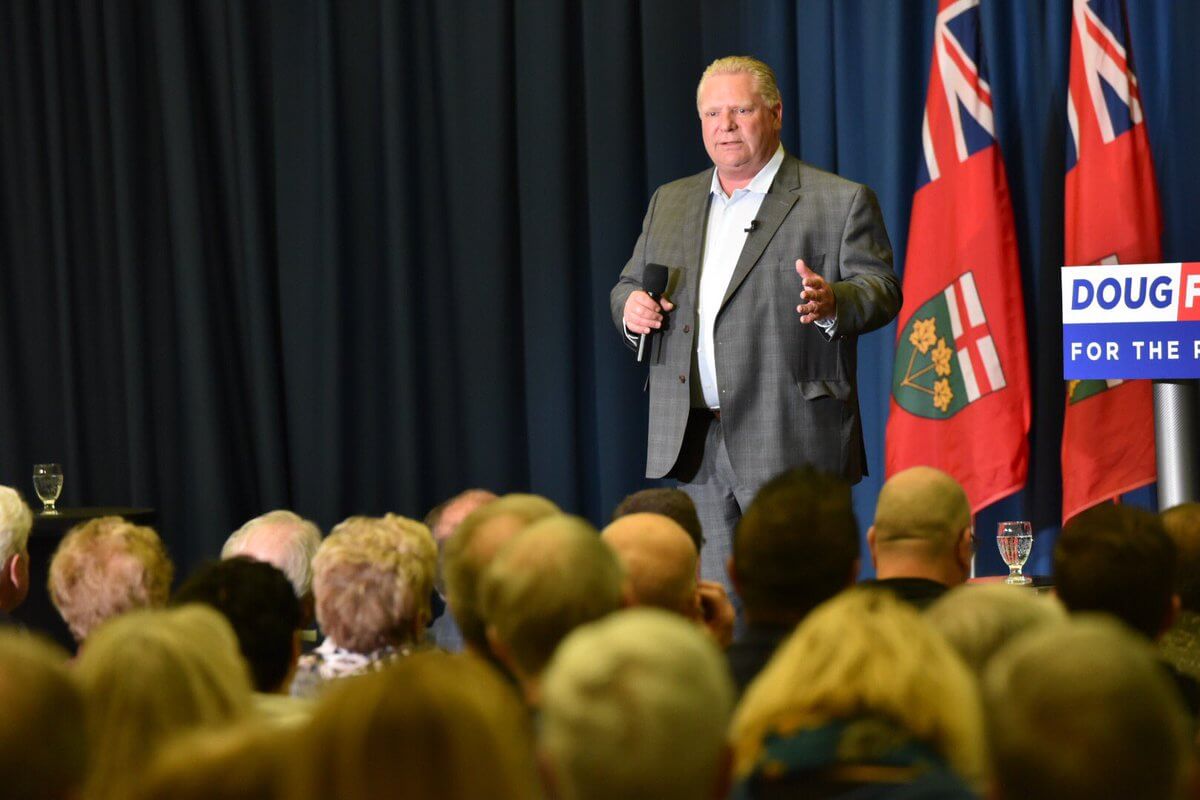 Rural Canadians understand that our major cities naturally have greater cultural and political influence but they want to be heard and understood. They want their experiences and perspectives to be recognized and respected. And they don’t want to feel cut off from the rest of us, writes Sean Speer.
Rural Canadians understand that our major cities naturally have greater cultural and political influence but they want to be heard and understood. They want their experiences and perspectives to be recognized and respected. And they don’t want to feel cut off from the rest of us, writes Sean Speer.
Recent news that bus services will be canceled in rural communities in Northern Ontario and the Western provinces is a reminder of the differences between urban and rural Canada.
The loss of bus services may seem trivial to urban residents, but for some rural and remote communities it may cause isolation and a further disconnect from the rest of the country. A local official from Brooks, Alberta, said it will make members of the community “feel cut off” from urban amenities and services. An Indigenous chief in Northern Manitoba warned of “hardship” due to the end of this transportation “lifeline.” The mayor of Oyen, a town of 1,000 people near the Saskatchewan-Alberta border, called it “devastating.” And my parents’s MP in Thunder Bay described how her “heart sunk” when she learned of the news because it’s such a “big blow” to the region.
These expressions of despair over the cessation of inter-city bus routes symbolize a larger disconnect between urban and rural Canada. It’s not just about the loss of a transportation option. These voices are expressing deeper feelings of anxiety, neglect, and a growing distance – including culturally and socio-economically – from the rest of Canada.
A large body of evidence finds key differences in cultural values, demographic indicators, and economic outcomes between urban and rural Canadians. Where we live is the key determinant of how we think, work, and live. And, as we continue to urbanize, a chasm is growing between urban and rural experiences and perspectives.
The data are pretty overwhelming. On a host of measures – ranging from incomes to employment to education to immigration to health to religion to family size to sex – researchers find significant differences between those in Oyen and Calgary or Atikokan and Toronto or Prince George and Vancouver. The urban/rural divide is becoming the deepest and most pronounced fault line in our society.
These urban/rural differences manifest themselves in our politics. Studies show that urban and rural voters have different political orientations and preferences even after controlling for socio-demographic factors as well as ideology. Put more simply: where we live shapes how we vote more than other factors such as age, income, religion, or values.
And this has a unique dynamic in Canada where more than one-in-three now live in Montreal, Toronto, and Vancouver. Roughly 16 percent live in the Greater Toronto Area alone. Canada’s three largest cities now arguably make up the most important voting bloc in the country – especially given their distinctive demographics, economies, and values.
It’s increasingly an arithmetical and political truism that these major urban centres effectively have a veto over our politics. A political party cannot form government without substantial support in Montreal, Toronto, and Vancouver. The 2015 federal election is a good example. The Conservative Party was shut out in these three cities, and it had a decisive effect on the overall result. New polling shows a similar trend may decide the 2019 election. Globe and Mail columnist Doug Saunders has referred to this as the “politics of demography” over the “politics of geography.”
The problem is the “politics of demography” can contribute to a sense of rural alienation. Rural Canadians can come to “feel cut off” from culture, government, media, and politics. News coverage is urban centric. Political priorities don’t connect with them. Cultural references don’t resonant. They feel neglected. They feel like they’ve lost any influence over their national culture and politics. And they’re not wrong.
How else does one explain that more than 40 percent of new Order of Canada appointments are from Montreal, Toronto, and Vancouver? This number swells to well over half if one accounts for surrounding cities such as Mississauga and Laval and other urban centres such as Ottawa which is itself home to 12 of the 105 new appointees.
There’s an onus on our political leaders to bridge this urban/rural divide and to make our politics more attentive and responsive to rural needs and concerns. This doesn’t mean more subsidies or tokenism. But it does mean more empathy.
Rural Canadians understand that our major cities naturally have greater cultural and political influence. There’s no expectation that this should somehow be artificially reversed or diminished. But they want to be heard and understood. They want their experiences and perspectives to be recognized and respected. And they don’t want to feel cut off from the rest of us.
Sean Speer is a Munk senior fellow at the Macdonald-Laurier Institute. He was born and raised in Thunder Bay and now lives in Toronto





